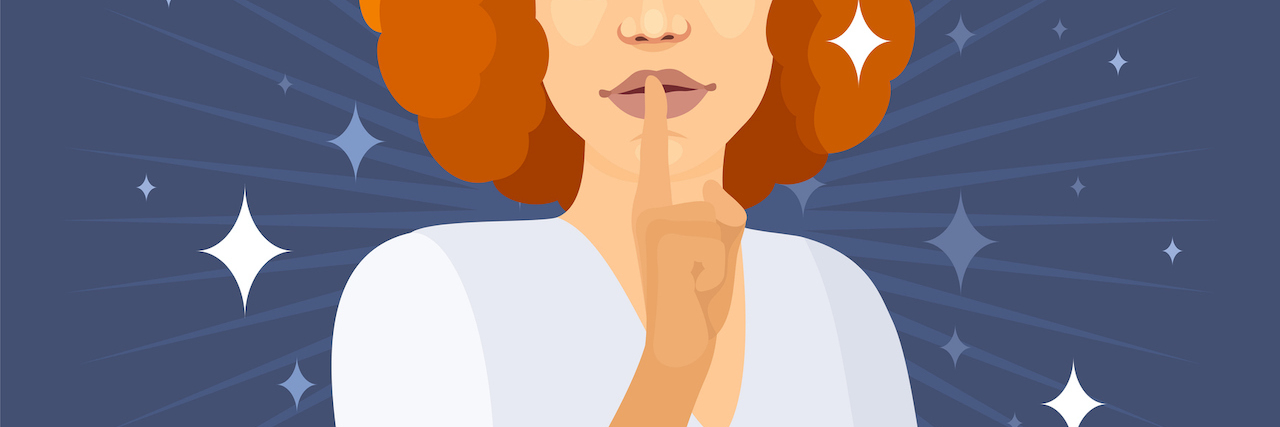How much do you know about bipolar disorder? You might mention the mood swings. The depression. The mania that follows.
If you don’t live with it, or know a loved one who lives with it, that’s likely where your knowledge stops.
• What is Bipolar disorder?
But what else is important about bipolar disorder that we don’t talk about? We teamed up with the International Bipolar Foundation to explore the unspoken corners of bipolar disorder, and asked people living with bipolar what parts of the disorder really need awareness.
Here’s what they had to say:
1. “The effects of various types of medications — from weight gain (or loss) to brain fog, forgetfulness, word-finding difficulties… It’s frustrating and can lower your self-esteem.”
2. “It seems like no one, including doctors, wants to discuss the hypersexuality that can come along with bipolar mania. This can be a very shameful part of the illness. It can cause serious damage to the person suffering.”
3. “Manic states aren’t fun, like many think. You can become self-destructive, and often impulsive decisions are made that have potentially devastating consequences. It can be overwhelming to deal with racing thoughts, and I get incredibly irritable. I think mania reduces my inhibitions and I get aggravated much more easily. I also don’t sleep much at all when I’m manic. It’s not a euphoria for me, and it’s often followed by severe depression.”
4. “The media portrayal of the illness is very narrow. It focuses on the acute stage of mania and depression and rarely acknowledges that patients have stable moods and their symptoms can be in remission for a good deal of time.”
5. “Having bipolar can lead to darkness in your life. Mental illness is just as deadly as many other life-threatening diseases.”
6. “People don’t talk about how it actually feels to have bipolar. People talk about signs and symptoms, but not what it actually feels like going through them. How frightening it is to have it, how totally out of control it makes you feel. People without it don’t see it as debilitating — they know it as a ‘mood swing’ when it’s so much more.”
7. “People need to understand it is not an excuse, it is a disorder. Read about it before you judge.”
8. “I think nobody talks about the difference between our mood swings and our actual emotions we feel as human beings. I have encountered my legitimate feelings being mistaken for my mental illness. I feel like my mental illness gets blamed for anything negative I’m going through, taking away my right as a human being to feel those emotions.”
9. “The mixed episodes are rarely mentioned. People without bipolar often assume there’s only two phases, mania and depression, and they present in specific ways with specific symptoms. However, each episode can present itself uniquely and aren’t always pure mania or pure depression.”
10. “I’m very open about my bipolar disorder, but I never talk about hallucinations. People can handle when you explain highs and lows, but trying to explain hallucinations when manic is just a recipe for disaster.”
11. “It can take many years to get an accurate diagnosis and then find and receive a treatment plan that helps. Many patients suffer from co-disorders such as addictions. People, in general, don’t want to talk about bipolar disorder and tend to shun those who suffer from the illness.”
12. “The suicidal depression or the life-wrecking mania. They both affect everyone who loves you.”
13. “It is amazing how quick you can feel OK on meds and your mind says, maybe you don’t need this stuff. And then you’re manic or hyper-manic, which at some point will result in the dreadful depression — back at square one again.”
14. “You shed so many tears from pure frustration because no matter how hard you try, sometimes the anxiety and depression won’t let up. You try to be strong in public, but in private you roll up into a ball in anxiety and fear.”
15. “I hate the frightening paranoid symptoms — feeling unable to trust people, not feeling safe, and in fear for my life.”
16. “There’s a stereotype of the manic-pixie girl who’s so mysterious and cool because of her illness. Stop romanticizing bipolar disorder. It is nowhere near glamorous.”
17. “Trying to decide which is more damaging to your marriage: medication side effects or unmedicated illness. Ever since I started medication years ago, I have had zero sexual desire.”
18. “Children can have bipolar disorder, and even though the symptoms are different in children, it’s still a devastating illness for both the child and the family.”
19. “The awkward shift when you’re not up or down, but moving either up or down. The in between valley and plateau period. The time where you’re unsure how low you may go or how manic you may get.”
20. “Bipolar disorder is different for each person who has it.”
21. “People refer to bipolar disorder as another word for mood swings. It’s so much more than that. Also, no one talks about the impact it has on families, not just the individual.”
22. “People with bipolar disorder can have children and be good parents. It’s not easy by any means, but it’s possible with a support system you trust, made up of mental health professionals and loved ones. Having my girls was the hardest but most rewarding decision of my life. They are my light through the darkest of days.”
23. “The importance of establishing a crisis action plan. Knowing who to call, where to go and giving prior consent to those in your support system to intervene during times of crisis.”
Getty image by AlonzoDesign

